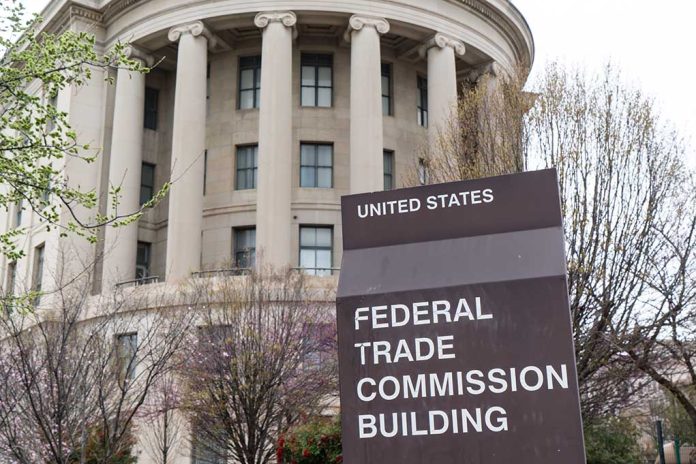
The Federal Trade Commission threatens StubHub with fines up to $53,088 per violation for deliberately hiding ticket fees during NFL schedule release to gain unfair market advantage over compliant competitors.
Key Takeaways
- The FTC issued a formal warning to StubHub for failing to display total ticket prices upfront, violating the new all-in pricing rule effective May 12.
- StubHub strategically delayed updating its mobile app during the NFL’s 2025 schedule release – a high-traffic period – while competitors Ticketmaster and SeatGeek complied with regulations.
- Each instance of non-compliance could result in civil penalties of up to $53,088 per violation.
- The crackdown is part of President Trump’s broader executive order targeting unfair practices in the live entertainment market.
- Companies had several months to prepare for these changes after the rule was announced in December and published in January.
StubHub’s Strategic Non-Compliance During NFL Schedule Release
The Federal Trade Commission has issued a sharp warning to ticket reseller StubHub for failing to comply with new transparency regulations requiring upfront disclosure of all mandatory fees. The timing of StubHub’s partial compliance raised significant concerns, as the company updated its website but deliberately delayed implementing changes on its mobile app during the highly anticipated NFL 2025 schedule announcement – one of the busiest ticket-buying periods of the year. This selective implementation gave StubHub an unfair market advantage over competitors like Ticketmaster and SeatGeek, who fully complied with the regulations by the May 12 deadline.
“Companies have had sufficient time to prepare for these changes and update their advertising to ensure the total price of each product or service is appropriately disclosed.” Said Chris Mufarrige
Hidden Fees and Deceptive Pricing Tactics
The FTC’s newly enforced rule addresses the long-standing consumer frustration with deceptive pricing strategies where mandatory fees are hidden until the final checkout stage. StubHub is specifically accused of misrepresenting ticket prices by excluding mandatory charges such as fulfillment and service fees from their initially displayed prices. These hidden fees can significantly inflate the final cost consumers pay, sometimes by as much as 30% or more. The regulation clearly states that only taxes, shipping costs, and genuinely optional charges can be excluded from the upfront price display.
“As this letter shows, the Commission will not allow companies to circumvent the rule to gain a competitive advantage.”
Part of President Trump’s Broader Crackdown on Ticket Industry Abuses
The FTC’s action against StubHub is part of President Trump’s comprehensive effort to combat unfair practices in the live entertainment market. The executive order specifically targets ticket scalping operations and unnecessary charges that harm consumers. The Better Online Ticket Sales (BOTS) Act, which the order directs the FTC to enforce more aggressively, prohibits the use of automated systems to bypass purchase limits and the creation of fake identities to acquire tickets for resale at inflated prices. This multi-agency approach includes a joint public inquiry by the Department of Justice and FTC into anticompetitive practices throughout the entertainment industry.
“Ticket scalpers use bots and other unfair means to acquire large quantities of face-value tickets and then resell them at an enormous markup on the secondary market, price-gouging consumers and depriving fans of the opportunity to see their favorite artists without incurring extraordinary expenses,” Stated President Donald Trump
Substantial Penalties for Non-Compliance
The consequences for StubHub’s continued non-compliance could be severe, with potential civil penalties reaching $53,088 for each separate violation. The FTC clarified that each ticket listing without proper price transparency constitutes an individual violation, creating enormous financial risk for the company. The commission has also alerted other ticketing platforms that it will be monitoring them closely to ensure universal compliance with the new transparency rules. Companies were given ample time to prepare, with the rule announced in December, published in January, and an implementation deadline of May 12.
“Competitive live entertainment markets should deliver value to artists and fans alike,” Said Abigail Slater highlighting the administration’s focus on creating fair market conditions.




